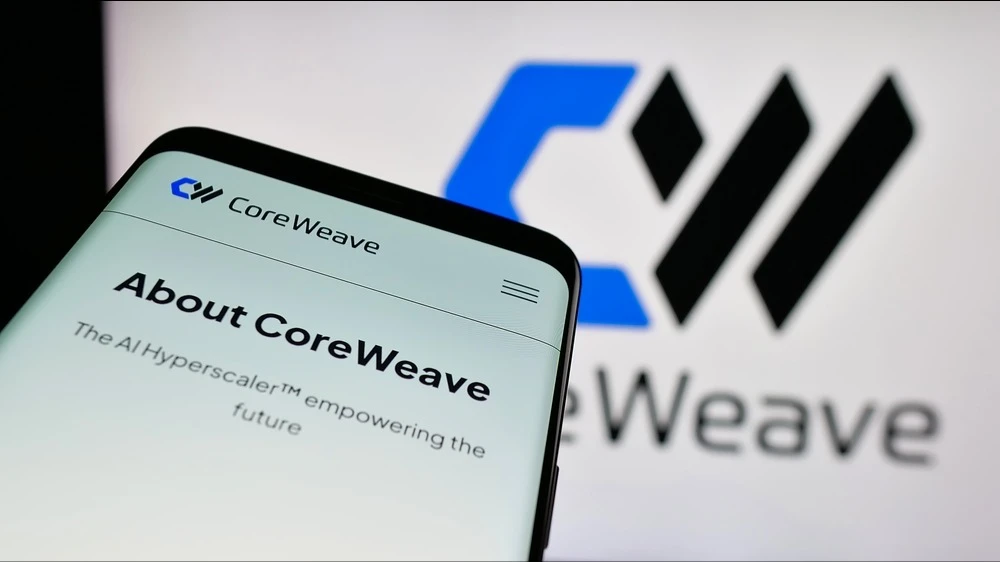CoreWeave signed a $6.3 billion contract with Nvidia, protecting it from falling demand
CoreWeave shares jumped nearly 9% in trading on Sept. 15

CoreWeave, a provider of cloud services for developing and training AI models, has signed a $6.3 billion contract with Nvidia, its shareholder and the global leader in the AI processor market. Nvidia, which supplies CoreWeave with its AI chips, has committed to buy out any unsold cloud capacity in the company's data centers by 2032. The agreement solidifies CoreWeave's status as a key cloud partner for Nvidia and protects it from a possible drop in demand for AI computing capacity, analysts said.
Details
CoreWeave has entered into a $6.3 billion contract with Nvidia, according to a document filed with the U.S. Securities and Exchange Commission (SEC). Under the terms of the agreement, Nvidia is committed to buy back all unsold cloud capacity until April 2032 if CoreWeave's data centers are not fully utilized by customers. The latter operates data centers in the U.S. and Europe, providing access to Nvidia's GPUs needed to train and run large AI models. In addition, Nvidia is a CoreWeave shareholder - as of June 30, it owned about 6.6% of the stock, Barron's specifies.
The deal was a continuation of an agreement signed between the two companies back in April 2023, the document shows. The companies had not previously disclosed the agreement, but CoreWeave management recognized it as "material" since it deemed it required disclosure, Barron's noted.
"This agreement reflects CoreWeave's scale, trust and key role in accelerating the adoption of AI around the world," a company spokesperson told Barron's. CoreWeave plans to release the full terms of its agreement with Nvidia along with its quarterly report on Nov. 12.
What does that mean
The deal may dispel some of Wall Street's concerns about CoreWeave's business model, which relies on large capital investments in building and equipping data centers, Barron's points out. The company expects capex of $20-23 billion in 2025, which increases its debt load and risks of underutilizing capacity. CoreWeave has repeatedly emphasized the need for such spending and noted that it does not bear excessive risks. "We don't build infrastructure in the hope that people will come to use it later," Brannin McBee, the company's co-founder and chief development officer, told Barron's.
Barclays analysts believe that the updated agreement serves as a kind of insurance for CoreWeave: it guarantees data center utilization regardless of end customers and secures the company's status as Nvidia's key cloud partner. This mechanism mitigates the risk of a drop in demand for AI capacity, while Nvidia's additional spending allows it to diversify beyond its largest customers.
"We see this as a positive for CoreWeave, given investor concerns about whether the company will be able to support center utilization beyond its two main customers, Microsoft and OpenAI," said Barclays analysts quoted by Reuters.
In March, CoreWeave signed a five-year, $11.9 billion contract with OpenAI to provide cloud capacity for the ChatGPT creator. Additionally, the parties entered into an agreement under which OpenAI committed to pay up to $4 billion more through April 2029, Reuters recalled.
What about the stock
In trading on Sept. 15, CoreWeave shares jumped nearly 9% to $121.8 at the moment. Since the company's IPO, which was at the end of March 2025, its market value has risen more than 200%.
15 out of 25 analysts who have rated CoreWeave securities advise investors to keep them in their portfolios (Hold rating), according to MarketWatch. Another eight advise them to buy (Buy and Overweight), while the remaining two suggest selling (Underweight and Sell). Wall Street's consensus target price of $125.7 per paper suggests CoreWeave's stock is up another 12% from its close on Friday, September 12th.
Nvidia shares, on the contrary, were declining by more than 1.9% during the trading, but then slowed down to -0.5%. The reason for investors' pessimism was the problems in China. The local regulator reported that a preliminary investigation revealed antitrust violations on the part of the chip maker. Relative to the beginning of 2025, however, the securities of Nvidia in the plus by almost 32%.
The vast majority of analysts - 59 out of 65 - advise investors to buy Nvidia stock, and its average target price ($217.5) suggests the company's market value is up another 22% from its last close.
This article was AI-translated and verified by a human editor
